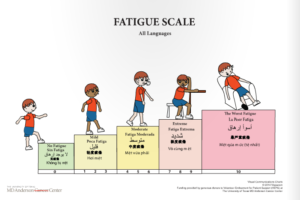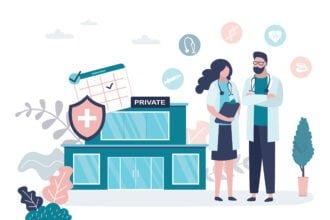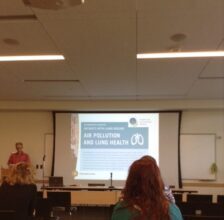Would you rather your physician be an astute diagnostician or a compassionate and empathic practitioner? Of course, we want our physicians to be blends of these qualities. We want it all. We want them to be chimeras of Drs. House and Welby. But, is this possible?
Would you rather your physician be an astute diagnostician or a compassionate and empathic practitioner? Of course, we want our physicians to be blends of these qualities. We want it all. We want them to be chimeras of Drs. House and Welby. But, is this possible?
I can’t say. I suspect that it is easier to cultivate soft bedside manners than it is to teach medical acumen, although the latter was the overriding priority when I was in medical training. No points were awarded in our morning reports with the chief of medicine for holding a patient’s hand during the night. Big win, however, if the intern could recite 14 causes of hypercalcemia. The message was that ‘hard medicine’ is what really matters.
The importance of bedside manners depends upon the specific medical circumstance at hand. Good bedside manners may mean less if you are going to see a physician once for a procedure than it would if the doctor-patient relationship were to be ongoing.
There has been more emphasis on medical humanity in medical training in recent years, although the trajectory has not been a straight and steady incline. Resistance to reducing excessive and oppressive work schedules of interns and residents is still viable, but progress has been made. I’m not suggesting that medical interns work a 40 hour work week, but I do reject that exhausted and somnambulating house staff are a necessary feature of medical training and education. And, if medical ‘reform’ keeps progressing, how much dedication can we expect from house staff who will later join the ranks of employed physicians who are on a time clock?
Perhaps, shift work doctors will have meaningful doctor-patient relationships. Since these physicians will have more of a life, perhaps they will relate better to their patients as human beings. I’m not certain of this, but I offer it as a possibility.
I have come to appreciate how important are the soft sides of medical practice. Of course, medical knowledge is critical, but medical judgment is paramount. We’ve all seen medical geniuses who wielded a clumsy clinical axe. Conversely, we’ve admired great healers who were not scholars. If I’m sick, I’ll pass on the medical prodigy in favor of an excellent listener and judicious practitioner. Remember patients, no doctor has it all.
Here are a few clinical scenarios I’ve encountered recently that require a non-scholarly remedy.
- A physician is interviewing a man with hepatitis C. His wife is at the bedside. Do you ask then about a history of intravenous drug use, which is an essential question in this circumstance?
- A nurse gives a patient more sedation than the physician ordered. Should this be reported to her supervisor if no adverse consequence occurred?
- A colleague requests that you do a procedure on an elderly patient that can be medically justified, but isn’t truly necessary. What should the procedurist’s next move be?
- A patient is convinced that his complaints have a medical explanation, although the physician strongly suspects they are psychologically based. What’s the doctor’s game plan here? One false step and the doctor-patient relationship may be ruptured.
Physicians wrestle with these kinds of issues every day. Sometimes, we get them right and sometimes we misfire. We’re not perfect, even though we often feel that this is the expectation. Not surprisingly, different physicians have their own individual approaches to medical and ethical issues. Every physician is unique by virtue of different training, personality style and experience. I wonder how the pay-for-performance panacea will measure all of this.
Doctoring is tricky business, and we don’t know the specific ingredients and proportions that constitute a great physician. There is no recipe. It’s an amorphous mixture of humanity, humility, medical knowledge, clinical experience, excellent communication skills, compassion and personal warmth. And, of course, we’re supposed to run on time.
As patients, which qualities in your physicians do you value most?









